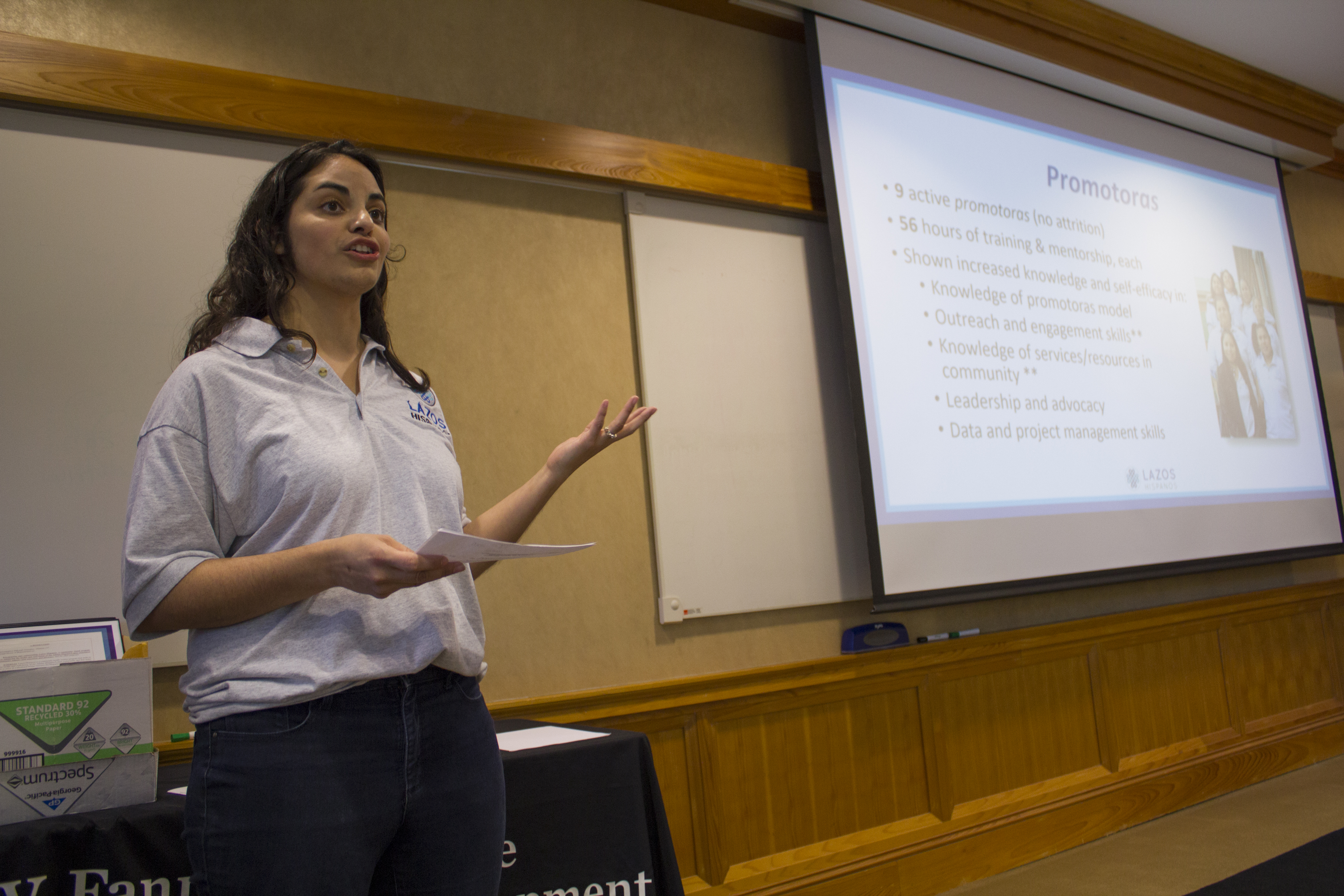By Crysta Jones
[This is part of a series of briefs covering the 2019 State of the Public’s Health conference produced by graduate students at the UGA Grady College of Journalism & Mass Communication in conjunction with the Health and Medical Journalism Program.]
A small group of community volunteers are showing that when factors like language, socioeconomic status and lifestyle are carefully taken into consideration, gaps between the health care system and the Hispanic community can be effectively bridged.
Since 2017, a University of Georgia research team has been training local women who are Latinx— a gender-neutral term used to describe people of Latin American cultural or racial identity— to help the local Latinx community navigate the complex health care system. The women, called promotoras, help others to schedule doctor’s appointments, advocate for care and provide referrals for social services.
“Promotoras are the star of the show,” said Alejandra Calva, a dual-degree graduate student at UGA’s College of Public Health and School of Social Work. Calva works with local promotoras through a project called Lazos Hispanos, meaning Hispanic Links. The project is effective because the women are respected members of the communities they serve, Calva said at the recent State of the Public’s Health Conference.
That day-long event looked at various healthcare challenges in Georgia, like high maternal mortality rates and poor access to care in rural communities. Calva’s panel explored the role that Community Health Workers can play in making health care services accessible for everyone.
Calva was joined by Berneta Haynes, senior director of policy and access at Georgia Watch, a consumer advocacy organization that address financial and quality of life issues. Both women touted the role of Community Health Workers, who are generally made up of trusted individuals of their community who offer their time voluntarily.
These volunteers are an important link between health care providers, social services and their community, panelists said.
And the importance of this form of outreach is catching the attention of state health officials. The state is working to create a standardized program to train Community Health Workers for both clinical and community settings, said Jake Sneed, program manager for the Georgia Department of Public Health’s Community Health Worker program, who was not on the panel but attended the session. Sneed said the timeline is tentative, but that the process could take a few of years.
In the meantime, Calva says programs like Lazos Hispanos and others can offer an ideal two-way relationship between the communities like the Latinx, and workers in the health care system.
“Now the providers actually know what the community wants and what the community actually needs,” she said. “Not what the providers think the community needs.”
Posted on November 15, 2019.
Additional Conference Briefs:
- When loss negatively affects an individual’s health, bereavement training can offer solutions
- Designing for better health outcomes in rural communities
- Health misinformation confuses communities, persists in memory
- Improving family’s public health by making education a focal point
- Resilient Georgia links public and private organizations to bolster fight against child trauma







